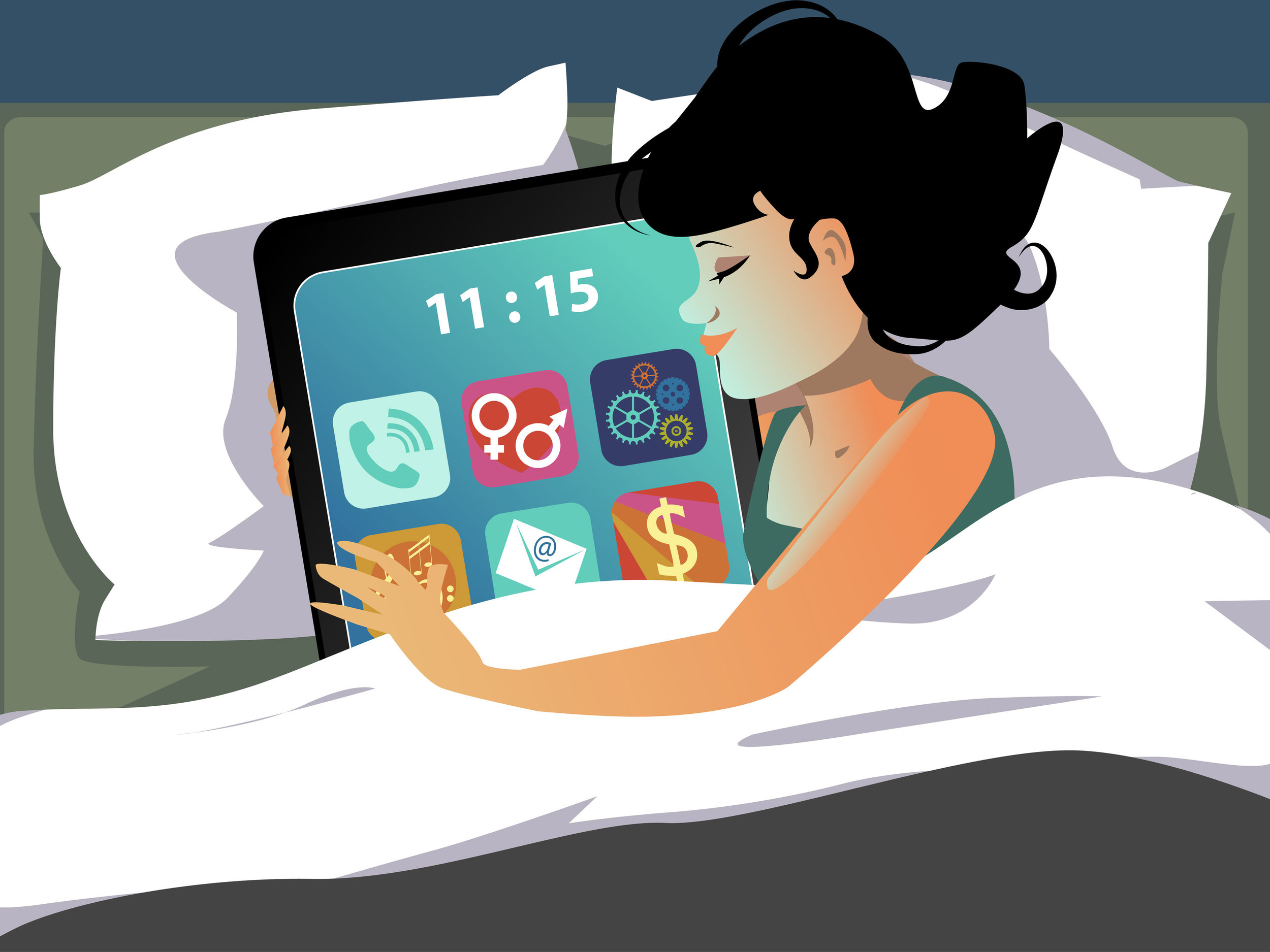1. Understand What “Internet Addiction” Means
Let’s begin by defining the problem. While spending time online is normal, “internet addiction” refers to a pattern where use of the internet (gaming, social media, streaming, browsing) becomes compulsive, starts interfering with daily life, relationships, work or education—and the person finds it hard to cut or control usage. In studies from Mumbai and elsewhere the effects include sleep disruption, attention problems, social withdrawal and emotional distress.
In the context of a city like Mumbai, with high connectivity, mobile devices everywhere, and strong pressures on young adults, the risk is elevated. Recognising that you’re dealing with more than “just too much screen time” is important—it means the internet use is harming you (or potential to harm) and you might need structured help.
2. Clarify Your Own Situation & Goals
Before looking for a treatment centre, it helps to ask yourself some questions:
- How many hours a day (or night) am I online for non-work use? When am I supposed to be offline (sleeping, studying, socialising) but instead I’m still online?
- What are the consequences I’m seeing? (Poor grades or work performance, arguments with family/partner, neglect of hygiene, mood swings, anxiety when offline, degrading physical health.)
- What triggers me to go online? (Boredom, loneliness, stress, emotional pain, escapism.)
- What do I hope to achieve by getting help? (E.g., “Office use only during work hours and maximum 1 hour for leisure,” “No gaming on weekdays after 8pm,” “Better sleep routine,” “Healthy offline social life.”) Having a clear internal picture will help you match what a treatment centre offers to what you need.
3. Know What Good Treatment Should Offer
When you evaluate treatment centres in Mumbai, look for services addressing the unique nature of internet / digital addictions (not just substance addiction). Key features include:
- Assessment & diagnosis: A qualified psychiatrist or clinical psychologist should evaluate your onlinebehaviour, co-existing mental health issues (e.g., anxiety, depression) or any physical/neurological concerns. For instance, many psychiatrists in Mumbai treat internet addiction.
- Therapy tailored to behavioural addiction: Approaches like cognitive behavioural therapy (CBT), motivational interviewing, and relapse-prevention programming are essential.
- Structured routine & environment: If residential or day-treatment, the centre should help you disconnect (or limit connection) from triggers: devices, constant notifications, late‐night browsing.
- Holistic support: Since digital addiction affects lifestyle, look for centres that include sleep hygiene, physical activity, mindfulness/meditation, art or recreational therapy, social skill rebuilding. For example, one centre lists behavioural addictions including internet/mobile/gaming among their services.
- Aftercare & relapse prevention: One-time treatment isn’t enough. Good programmes ensure follow-up support, peer groups, strategies to manage access to the internet, setting healthy boundaries.
- Qualified staff, safe environment: Check whether therapists are properly licensed, staff are trained in behavioural addictions, and the premises are comfortable and supportive (especially in a metropolis like Mumbai where environment can matter a lot).
- Flexibility & transparency: Treatment modality (residential vs outpatient) should match your severity, budget, responsibilities (job, family). The centre should be transparent about fees, rules, duration.
4. Shortlist Suitable Centres in/around Mumbai
Now you can actively look for treatment centres. Here’s how:
- Use directories/reviews to find “internet-deaddiction centres Mumbai”, “behavioural addiction treatment Mumbai”. A listing shows multiple such centres in Mumbai.
- Visit the websites of reputable centres—see if they list internet/digital addictions among their services.
- Ask your GP or psychiatrist for referrals—they may know which centres are credible.
- Consider your location, cost & schedule: Are you okay with staying residential (away from your usual environment) or prefer outpatient? Do you want it within Mumbai city, suburbs or nearby?
- Shortlist 2-3 centres that appear to match your goals and budget, so you can compare.
5. Visit / Interview the Centres
Once you have a shortlist, you should visit or speak to representatives of each centre and ask pointed questions:
- Assessment process: How do they measure “internet addiction”? What baseline will they use to track progress?
- Programme details: What daily schedule do they follow? How are digital screens/ devices controlled? Are there offline activities?
- Staff expertise: Ask about therapists’ credentials, ratio of staff to residents/patients, whether psychiatrist oversight is available.
- Family involvement: Since digital addiction often affects relationships and routine, does the programme include family therapy or counselling?
- After-care plans: What happens after the main programme ends? Are there support groups, follow-up check-ins, strategies for staying offline when needed?
- Rules & environment: What restrictions are there on phone/device use? Is there a safe, comfortable place to stay (if residential)?
- Cost & transparency: What is included in the cost (therapy, accommodation, food, transport)? Are there hidden charges? Payment/insurance options?
- Success metrics and testimonials: While “100% cure” claims are unrealistic, ask for realistic outcomes or testimonials of people treated.
- Your gut feeling: Do you feel comfortable talking to the centre? Do staff seem empathetic and realistic (rather than hype-selling)? From your visit/interview you’ll get a clearer sense of which centre will be the best fit for you.
6. Prepare for Admission & Engage With the Program
Once you pick a centre, get ready for the next phase: admission and active participation.
- Prepare logistics: If residential, plan travel, inform your support network (family/friends) you’ll be away. If outpatient, ensure you can commit to the schedule.
- Bring relevant info: Medical history, current medications, any mental-health diagnoses, your internet usage history (hours, triggers, times you lose control).
- Set your mindset: Know this is a process. There may be uncomfortable feelings—withdrawal from constant online access, confronting how your internet use has impacted life, rebuilding habits.
- Engage fully: Attend therapy sessions, group work, recreational activities. Use device-free times as opportunities to rediscover other interests (reading, sports, hobbies).
- Work on triggers: One big focus will be identifying triggers for your compulsive internet use (stress, boredom, loneliness, escape). Developing strategies to intervene before the behaviour spirals is key.
- Rebuild routine: Your offline life may have become irregular—sleep late, skip meals, isolate. A good programme will help you fix wake-sleep times, proper meals, physical activity, social connections.
- Financial / professional life: If the addiction has impacted your work, finances or education, look out for sections of the programme addressing that—especially if you need help reorganising your schedule, finances or returning to work.
- Family & social reintegration: Use this time to work on your interpersonal relationships, rebuilding trust, setting device-boundaries at home, managing expectations of family/friends.
- Plan your exit: Even as you go through the programme, start looking ahead: what will life look like when you leave? What supports will you have in place?
7. Aftercare & Maintaining Healthy Digital Habits
Completing a programme is a major milestone—but ongoing effort is critical to sustain recovery. Here’s how to maintain progress:
- Stay connected with support: Whether via alumni groups, peer-support, follow-up sessions at the centre, maintain contact.
- Create device-boundaries: For example: no screens 1 h before bed, designated screen-free zones (like dining, bedroom), scheduled leisure-screen time, using apps that monitor usage.
- Use replacement activities: The time freed from compulsive internet use needs filling—physical exercise, offline hobbies, social outings, volunteering, reading, creative pursuits.
- Monitor mood & triggers: Many turn to the internet when they’re bored, lonely, stressed or anxious. If you notice such feelings, address them—talk to someone, engage in an offline activity, step away from devices.
- Financial & occupational stability: If your internet-addiction harmed your job or finances, keep the momentum going: steady daily routine, goals for your career/education, self-monitoring of screen-usage during work hours.
- Relapse isn’t failure: If you slip (e.g., overuse streaming for a day, binge-gaming) don’t view it as total failure—see it as a signal you need extra support. Contact your therapist or support group, adjust your strategies.
- Celebrate milestones: Recognise and reward your achievements—30 days with healthy usage, 90 days, 6 months. These count and reinforce the new habits.
8. Practical Considerations & Costs
It’s realistic to look at practicalities:
- Cost & duration: Centres offering residential programmes will cost more than outpatient. Duration might vary from a few weeks to months depending on severity of addiction and individual needs.
- Location & travel: If the centre is outside central Mumbai (or in suburbs), factor in travel costs and how easy it is for family visits (if allowed).
- Work/Family commitment: If you have a job, education or family responsibilities, choose a programme that fits (or plan leave).
- Insurance/Payment: Behavioural addictions may not always be covered by insurance like substance addictions—check ahead.
- Credentials & reviews: Be cautious of marketing hype. One Reddit user shared a warning:
“I no longer live in Mumbai … I was a victim of psychiatric fraud … He also did not tell me about side-effects … completely unlicensed.” So check licensure of therapists, credibility of the centre, reviews from alumni.
- Confidentiality & comfort: Digital/behavioural addiction may carry stigma. Make sure you’re comfortable with how the centre handles your privacy, and that the environment is supportive, not shaming.
- Customization: Your addiction pattern may differ (gaming, streaming, social media, browsing). The centre should offer tailored support—not one-size-fits-all.
9. Prioritise Fit, Not Just Reputation
Even two centres with stellar reputations may not fit you. So ask:
- Do you feel at ease talking to the staff? Are they listening, not judging?
- Does the programme’s schedule fit your life realistically (you’ll be more likely to complete it)?
- Does the centre’s environment (urban vs quiet suburb) feel comfortable to you?
- Does their treatment philosophy match your belief (strict isolation vs gradual reduction, device-monitoring vs controlled access)?
- Do they provide what you need (e.g., support for co-occurring issues like anxiety or online gaming compulsion)? Trust yourself: if something feels off in the initial conversation or visit, it’s okay to try a different centre.
10. Take the Step
The final step is simple but powerful: take action. The moment you decide and arrange for help is a turning point. Don’t delay—every day you wait is a day you remain stuck in the habit loop. Pick your chosen centre, set your admission date, inform your support circle, and commit. Recovery from internet addiction is absolutely possible—and with the right help in Mumbai you can transform your relationship with the online world and reclaim control of your time, attention and life.
Final Thoughts
In a city like Mumbai where digital connectivity is constant, finding a centre for Internet Addiction Treatment in Mumbai isn’t just about “cutting down browsing time” — it’s about rebuilding a balanced life, healthier habits, reconnecting with offline relationships and discovering a grounded, fulfilling lifestyle. By understanding your own situation, knowing what good treatment looks like, researching centres, preparing well, engaging deeply and continuing aftercare—you’ll significantly raise your chances of success.

